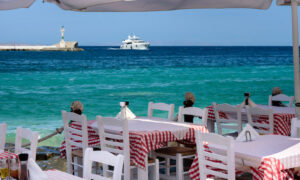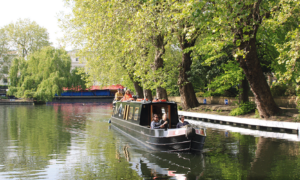(Editor’s note: Terry Boyd, who worked as a journalist in Croatia, Bosnia and Kosovo from 2000 to 2003, also contributed to this post.)
As a British expat, living in the European Union in these times of Brexit uncertainty, I am always looking at countries we visit on vacation as possible relocations should we decide to keep a healthy distance from the United Kingdom and the possible insecurities ahead.
Recently we vacationed in Croatia and fell in love with the country and its people, all the while wondering if moving here was an option for some perplexed British expats.
The hilly northern part, Istria, has an Italian feel with locals speaking both Italian and Croatian, which is unsurprising as it was part of Italy until after World War II.
The northeastern inland area with the capital Zagreb is the transit hub of Croatia and the city is an important trade centre. With a population of more than 800,000, Zagreb is a vibrant international city with a large expat presence.
The beautiful Adriatic coastline runs north to south starting in Istria and ending in Dubrovnik with more than a thousand islands dotted along its shores.
Demographics
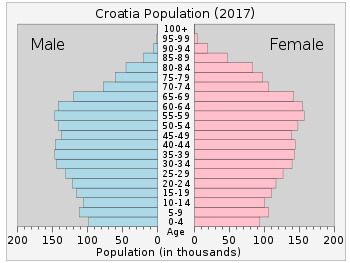
Croatia is a country that feels young despite being old in demographic terms, with the fastest growing demographic segment the 65-and-overs. In fact, Croatia’s population topped out at about 4.7 million in 1991 and is projected to shrink to 3.1 million by 2050.
Previously part of Yugoslavia until its independence in 1991 and having been an active participant in the Yugoslav Wars until 1995, Croatia has started a new chapter in its long history, joining NATO in 2009 and the EU in 2013.
As with all young states, it has growing pains, particularly with bureaucracy, but generally the country feels safe and very friendly. Of course there are pickpockets in the larger tourist cities and wandering in the remote hills is discouraged due to landmines remaining from the war. But the people are pleasant and most of the younger generation or those involved in tourism speak excellent English.
That being said, as with all relocations, you should expect to need to speak the local language and you should expect it to be difficult … that’s my experience!
If you are lucky enough to be from an EU country, then relocating to Croatia is easier. If you’re not, expect to jump through many, many hoops. And of course, the UK’s status is changing ….
The capital city of Zagreb is where most expats are centered, but the larger towns on the Adriatic coast such as Dubrovnik, Split, Šibenik, and Zadar offer opportunities as long as you are prepared for quiet winters once the tourists are long gone.
So, let’s look at the hard realities of Croatia as an expat destination.

Housing
Croatia is, of course, an EU member and allows foreigners to buy property without restrictions as long as Croatian citizens have the right to acquire property in the buyer’s home country. This could become an issue for Brits depending on what sort of deal – if any – the UK reaches to leave the EU.
As noted above, Croatia’s population is declining due to low birth rates and immigration. But as Croatia becomes a major tourist and expat destination, housing costs are rising. Forbes had a recent post naming Zagreb as one of the best emerging real estate markets … a post that made clear there are market pressures at play as foreigners snap up relative bargains in one of Europe’s most desirable locales.
The New York Times also has a well-researched post about house-hunting in Croatia.
Finally, the Global Property Guide has a lot of good data.
Here are the details:
• Asking prices for condos in Zagreb increased 20 percent in 2018 while the rest of the country only saw increases of about 8.5 percent, according to the Forbes post. Demand is surging for vacation rentals with about 20 percent of buyers coming from outside Croatia according to media reports.
• The old real estate axiom about the three most important elements being location, location, location is evident here. High-end houses close to the sea sell for a huge premium, twice that of comparable properties farther inland, according to the New York Times post.
• The trend is for locals to build houses on land they already own to use as rentals/Airbnbs for tourists and expats. Russians, Germans, Italians and Austrians are all active in the market.
• You can expect to pay about 5,500 Croatian Kuna per month, or about 735 euros, on an 85m2 apartment in a nice area, according to crowd-sourced data website Expatistan.
Weather
The moderate rainy climate shows the average temperature ranges from minus 3 degrees C in winter to 18C in summer, with the coastline having Mediterranean weather generally. The Bora, a local wind that blows from the coastal mountains, can be fierce with wind speeds at hurricane force.
Health
The national health care is pretty good in Croatia. But as with many countries, it suffers from budget, staff shortages and all the hassles that come with those issues.
Health insurance is a requirement for expats applying for residency, and a smart move if the UK is no longer covered by the EEA policy. Once you are a long-term resident, you are covered by public health insurance, which is taken from your salary. But there are co-payment expectations for prescriptions, doctor and hospital visits for which you can take out an extra policy.
Education
Elementary education starts at age six, with access to pre-schools and nurseries, both state (about 256 euros if you are not a permanent residence) and private (about 270 to 470 euros). The free state elementary schools are taught in Croatian obviously, as are the high schools, but near Zagreb there are several international schools and kindergartens.
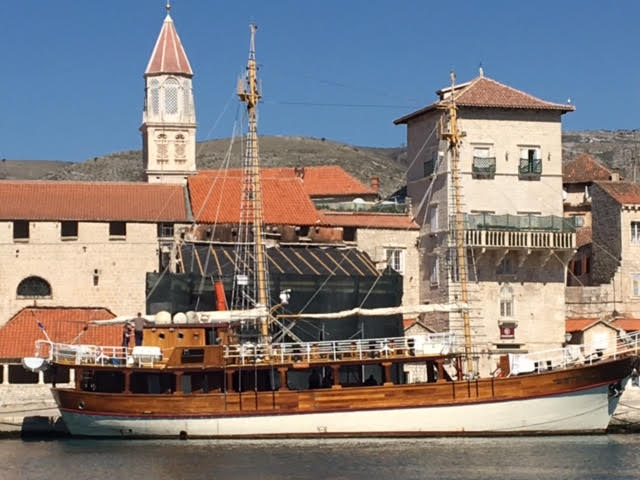
Travel
There are several international airports in Croatia, the main one being Franjo Tudjman Airport in Zagreb but also in Dubrovnik, Split, Zadar, Pula and Rijeka. The internal travel infrastructure is lacking and rail travel within Croatia is poor. Buses are a more efficient mode of transport, as is a car.
The main roads generally seemed well maintained with tolls on most of the highways, but smaller country roads can be narrow and exciting! Of course, a country with over a thousand islands and a short trip to mainland Italy has a thriving ferry business.
Post-Brexit status
Croatian lawmakers are still weighing their options including settling on a deadline for Brits to acquire a carte de sejour. But they get up to a year to replace their current residence visas with new documents. Croatia is also considering swapping out current temporary national residence permits when Brexit occurs (whenever that is) and replacing them with new temp docs.
There’s more information on the Republic of Croatia official website. Also, see Dispatches’ running list of what each country is offering British citizens should there be a no-deal Brexit.
There’s also more here on the new official GOV.UK Brexit site. Finally, here’s Dispatches’s expat guide to Split.
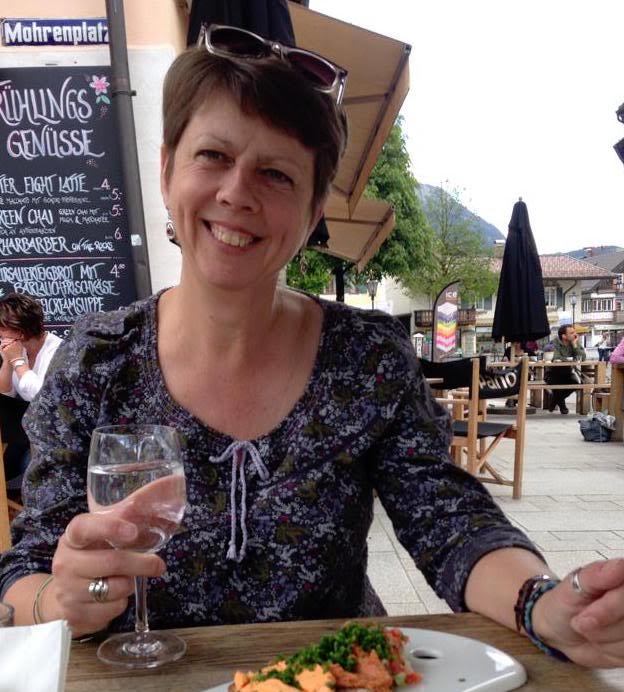
About the author:
Jackie Harding was born in the United Kingdom. As a longtime expat, she’s lived in Boston for 12 years and in the Netherlands for the past eight years.
Trained as a nurse in the U.K., she worked for nine years in the United States as a special education teacher’s assistant. Since moving to the Netherlands, she has discovered writing and photography.
Writing for Dispatches since 2016, Jackie has written about her travels around Europe as well as about expat life and issues.
She also covered the Women’s March Amsterdam.
She’s married to British businessman Martin Harding and is the mother of two international adult children.
You can read more of Jackie’s work for Dispatches here
Photographer/writer Jackie Harding was born in the United Kingdom. As a long-time expat, she lived in Boston for 12 years and in the Netherlands for the past 10 years.
Trained as a nurse in the U.K., she worked for nine years in the United States as a special education teacher’s assistant. Since moving to the Netherlands, she has discovered writing and photography.
Contributing to Dispatches since 2016, Jackie has written about her travels around Europe as well as about expat life and issues.
She also covered the Women’s March Amsterdam.
She’s married to British businessman Martin Harding and is the mother of two international adult children.




